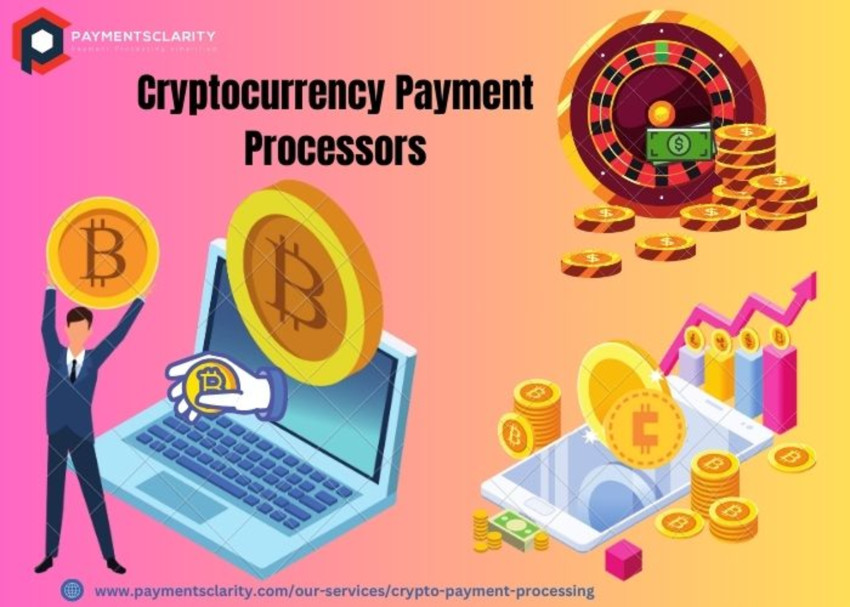
Blockchain for Payment Processing, the innovative technology underpinning cryptocurrencies, has significantly transformed the landscape of Blockchain for Payment Processing Companies. This decentralized, secure, and transparent ledger system has reshaped how financial transactions are conducted, offering a robust foundation for payment processing.
How Blockchain Revolutionizes Payment Processing:
Enhanced Security:
Blockchain's architecture ensures high-level security. Transactions are encrypted, linked, and stored in blocks across a decentralized network, making it exceptionally difficult for unauthorized tampering.
Transparent and Decentralized Ledger:
The decentralized nature of blockchain means there's no central authority governing the ledger. All network participants possess a copy of the entire transaction history, fostering transparency and reducing the risk of fraud.
Faster Transactions:
Traditional payment processing often involves intermediaries, causing delays. With blockchain, transactions occur directly between parties, leading to quicker settlements and eliminating the need for multiple intermediaries.
Reduced Costs:
The removal of intermediaries minimizes transaction fees and administrative costs, making blockchain an efficient and cost-effective payment processing solution.
Global Accessibility:
Blockchain technology operates across borders without the need for currency conversions. This fosters financial inclusion, enabling people worldwide to participate in transactions without the limitations of traditional banking systems.
Smart Contracts:
Smart contracts, automated self-executing contracts, are programmed on the blockchain. These contracts automatically enforce and verify agreements, ensuring secure and efficient payment processing without human intervention.
Immutable Record-Keeping:
Each transaction recorded on the blockchain is immutable. Once confirmed and added to the ledger, it cannot be altered, ensuring an auditable and permanent transaction history.
Implications for Payment Processors:
Blockchain technology has a profound impact on traditional payment processors. These processors are adapting to integrate blockchain-based solutions to enhance security, improve transaction speed, and reduce costs.
Benefits of Blockchain for Payment Processing
Blockchain technology offers a range of benefits for payment processing systems, revolutionizing the way financial transactions are conducted. Here are several key advantages:
- Enhanced Security: Blockchain's decentralized and distributed ledger ensures high-level security. Transactions are cryptographically secured and stored in blocks across a network of computers, significantly reducing the risk of fraud and unauthorized tampering.
- Improved Transparency: The transparent and immutable nature of blockchain fosters a clear, unalterable record of transactions. Every participant in the network possesses a copy of the entire transaction history, enhancing trust and reducing the chances of discrepancies.
- Faster Transactions: Removing intermediaries in the payment process leads to quicker settlements. Transactions occur directly between parties, reducing the time and complexity involved in traditional financial processing.
- Lower Costs: By eliminating intermediaries and automating processes, blockchain reduces transaction fees and administrative expenses. This cost efficiency benefits both businesses and consumers involved in transactions.
- Global Accessibility: Blockchain transcends geographical boundaries, allowing people worldwide to conduct transactions without the constraints of traditional banking systems. It promotes financial inclusion, offering opportunities for those without access to conventional banking services.
- Smart Contracts: Automated self-executing contracts known as smart contracts are a significant advantage of blockchain technology. These contracts, coded and deployed on the blockchain, enforce and verify agreements without the need for intermediaries, significantly streamlining and automating payment procedures.
- Redundancy and Resilience: The decentralized nature of blockchain minimizes the risk of system failures and ensures system reliability. Data redundancy across a network of nodes ensures that the system remains functional even if some nodes fail.
- Immutable Record-Keeping: Once a transaction is confirmed and recorded on the blockchain, it cannot be altered, providing an auditable and permanent transaction history. This feature ensures the integrity and permanence of transaction records.
Overall, the implementation of blockchain technology in payment processing systems offers greater security, transparency, speed, and cost-efficiency, fundamentally changing the way financial transactions are conducted in the modern era.
Conclusion:
The integration of blockchain into payment processing has brought about a revolutionary shift. Its transparent, secure, and decentralized structure has significant implications for the efficiency, security, and accessibility of payment processing across various industries. Embracing this transformative technology is pivotal in redefining the future of financial transactions and establishing more secure and streamlined payment ecosystems.
offshore payment processing |
Credit Card Processing for IPTV |
Credit Card Processing Steps |
Credit card process |
Credit Card Processing |
offshore credit card processor |
Merchant Account for Credit Card Processing |
process of credit card application |
What is an example of a payment processor? |
How do I become a card payment processor? |
Payment and card processing solutions |
What is credit card processing system? |
What is a Credit Card Processor? |
How Credit card processing works |




